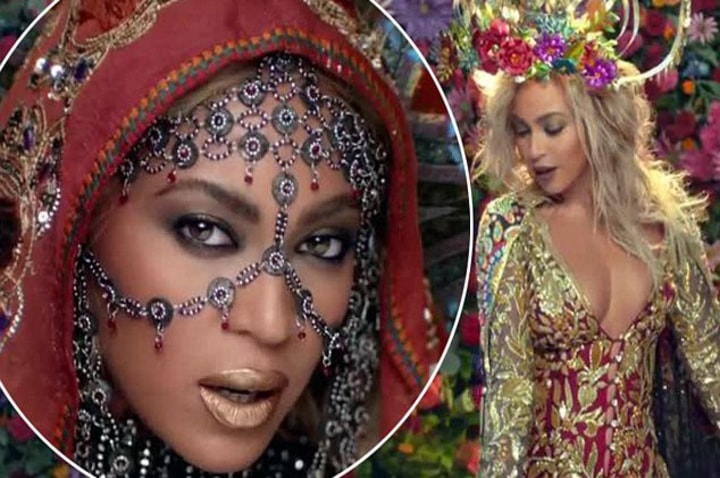
According to Oxford dictionary cultural appropriation is defined as, "the unacknowledged or inappropriate adoption of the customs, practices, ideas, etc. of one people or society by members of a more dominant people or society." What is important to note is that usually whatever the dominant society chooses to use to their advantage without consideration for its cultural context, is often something that has been the cause of discrimination against that particular culture. For instance, war bonnets (headdress) worn in the Native American community is sacred, and can only be worn by those who have earned the recognition and respect of those in their community. To see cheap imitations of these war bonnets which traditionally hold such cultural and political importance to a community is the very definition of cultural appropriation. To sell these online, in stores for costume parties or festivals is disgusting, and goes to show how little consideration the dominant society has for others.
Another example that particularly hits home for me is the way I have seen many young Caucasian women at festivals, on the streets during parades, and at club nights sporting the Pottu, also know as the Bindi. It holds insurmountable cultural significance to the wearer, and by choosing it to wear the Pottu without understanding the reason behind it is doing a big disservice to the culture. Traditionally, a bit of vermillion powder is applied in between the eyes, and is associated with the Ajna or third eye chakra. Apart from the cultural significance of it, young South Asian women do wear it as a decorative piece, however this is confined to certain cultural events such as weddings, puberty ceremonies, and other cultural functions. In some instances, people in the West have been known to poke fun at this ‘dot’ on the forehead. I myself as a child have been ridiculed often by other children on the street as I walked to Bharatanatyam classes. Now, it has evolved into some sort of fashion accessory for privileged white girls, who don’t understand its cultural significant by wearing it at inappropriate events, and will never understand the ridicule some of us have had to face for continuing to integrate a part of our culture within Western society. A fine example of cultural appropriation.
Now, likewise there are also those individuals who also take time to learn and understand a certain culture, and immerse themselves within the customs and traditions. When I was living in Bristol, I saw a Facebook event posted for a Sri Lankan cooking demonstration hosted by Jon Lewin by the harbourside. My friend was a bit skeptical, unsure that someone who was not of Sri Lankan origin could deliver, but I told her that (according to the Facebook event) he had lived there on and off so probably knew what he was doing. So, we made our way down to the harbourside, and found him by a food stall frying samosas. He wasn’t too busy and since many people weren’t gathered just yet, we had a chance to speak to him and take a look at his beautiful cookbook ‘The Locals Cookbook: Sri Lanka’. He told us a little bit about himself and what initially attracted him to Sri Lanka, which were the surfs. From there he spent several years on and off with locals, sampling the local cuisine, and learning about the culture and its people. Regardless of where one is from, when they have sat with, broken bread, and have learnt from its people, they become a part of that culture, and that is clearly showcased in his beautifully photographed cookbook. Not only is a he a phenomenal chef (the samosa was crunchy in all the right places and delicious) but also a travelling photojournalist who took his own photographs for the book. His photographs were life like and absolutely breathtaking in their sharp clarity, focus, and vibrant colours. He truly captured the local cuisine, and I became hungry just sifting through his book. I was honestly touched at just how appreciative he was of the culture, even befriending the locals, staying in their homes and learning to speak the language. He obviously had taken the time and effort to connect with the culture and learn along the way.
This cultural appreciation is what we need more of in the world. Now I’m not saying that everyone needs to live in or immerse themselves in a culture to appreciate it. One just needs to be mindful, and sensitive to the cultural customs of others, be open minded and willing to learn, and apologize if they, due to lack of understanding have offended a culture. We need less people wearing Native headwear, and Pottus at festivals, and more people seeking the meaning of these cultural symbols which will in turn lead to appreciation. By understanding and being more open minded to others who are different than us, we bridge the gap between racism, stereotypes and the intolerances that has us divided.
If anyone is interested in Jon Lewin, and his cookbook more information can be found in the link provided : http://thelocalscookbook.com/about/

























